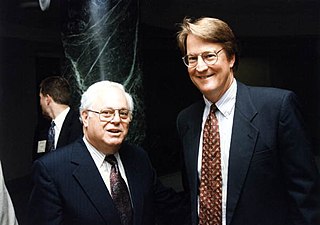A Quote by Katharine Fullerton Gerould
Many of us do not believe in capital punishment, because thus society takes from a man what society cannot give.
Related Quotes
When in Gregg v. Georgia the Supreme Court gave its seal of approval to capital punishment, this endorsement was premised on the promise that capital punishment would be administered with fairness and justice. Instead, the promise has become a cruel and empty mockery. If not remedied, the scandalous state of our present system of capital punishment will cast a pall of shame over our society for years to come. We cannot let it continue.
Whatever capital you divert to the support of a shiftless and good-for-nothing person is so much diverted from some other employment, and that means from somebody else. I would spend any conceivable amount of zeal and eloquence if I possessed it to try to make people grasp this idea. Capital is force. If it goes one way it cannot go another. If you give a loaf to a pauper you cannot give the same loaf to a laborer. Now this other man who would have got it but for the charitable sentiment which bestowed it on a worthless member of society is the Forgotten Man.
I believe that the community's duty to education is, therefore, its paramount moral duty. By law and punishment, by social agitation and discussion, society can regulate and form itself in a more or less haphazard and chance way. But through education society can formulate its own purposes, can organize its own means and resources, and thus shape itself with definiteness and economy in the direction in which it wishes to move.
Society takes upon itself the right to inflict appalling punishment on the individual, but it also has the supreme vice of shallowness, and fails to realize what it has done. When the man's punishment is over, it leaves him to himself; that is to say, it abandons him at the very moment when its highest duty towards him begins.
Man cannot be exempted from his divinely-imposed obligations toward civil society, and the representatives of authority have the right to coerce him when he refuses without reason to do his duty. Society, on the other hand, cannot defraud man of his God-granted right... Nor can society systematically void these rights by making their use impossible.
A dreaded society is not a civilized society. The most progressive and powerful society in the civilized sense, is a society which has recognized its ethos, and come to terms with the past and the present, with religion and science. With modernism and mysticism, with materialism and spirituality; a society free of tension, a society rich in culture. Such a society cannot come with hocus-pocus formulas and with fraud. It has to flow from the depth of a divine search.
As a Catholic, you can have two views on capital punishment. You can think, let Caesar do what Caesar needs to do, and the law says you can impose capital punishment, so you impose it. You can [also] be a Catholic who says we can't kill, we can't kill babies and we can't kill adults. If you let a decision be driven by your personal views, then you are not doing what a judge needs to do, which is enforce the laws of the society that you are in. But you can control your own behavior, and that is the choice that the church and God gives us - what kind of people are we going to be.






































